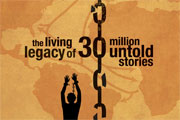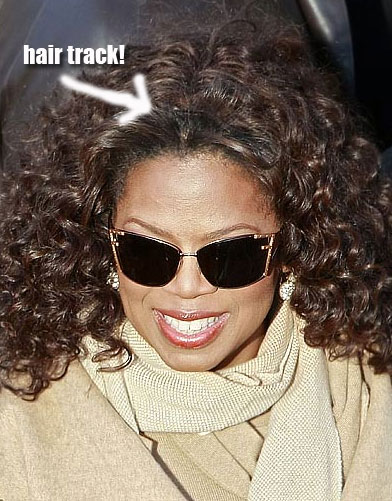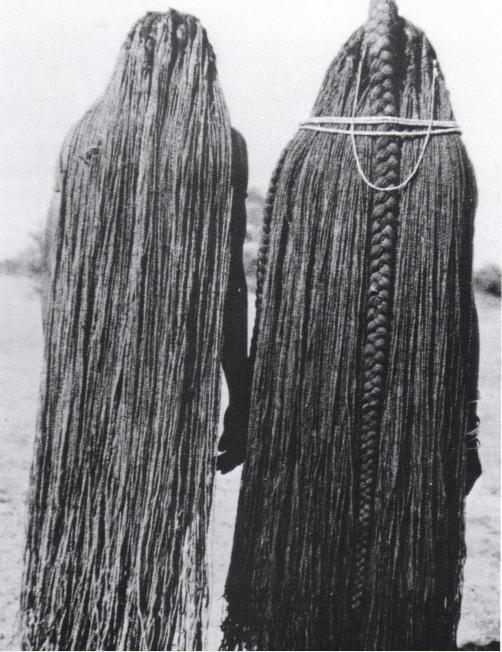[March 25, 2011]
I began the Sisters, STOP THE WEAVE CAMPAIGN! on Facebook. Go there to read the responses from my FB friends. The response below was sent to me in an email and I could not resist creating a post here on my blog.
"Now you have touched a woman. Now you have struck a rock!"
That defiant statement/slogan was at the heart of the protests against the
Apartheid government of South Africa's expansion of the odious pass laws to
include women, which led to the Sharpeville Massacre on March 21, 1960, a date
which is still observed as the International Day for the Elimination of Racial
Discrimination, declared by the United nations, and observed there (and
globally) on an annual basis. The statement was no glib rhetoric or
catchy slogan of the moment, like Madison Avenue ditties to sell some product,
but was rooted in a deep understanding of the universe, which includes the
proverb,
"When a boy child is born, a new world comes into being; when a girl child is born, God's own self has come to earth." Even behind all of the modern-day posturing and corruption of societal values, there is still an
abiding reverence for womanhood and motherhood that is directly linked to the
reverence and respect for Mother Earth, as in traditional societies around the
world.
Even in this modern world, with all of its rapid, even
convulsive changes, which invite and often obligate us to revisit and
reevaluate many of our inherited assumptions, I elect to stick with the
traditional wisdom of our Ancestors until it is proven to be incorrect.
Part of that wisdom is the recognition that man and woman are two halves of
the same fruit. (We might say the half you see and the half you don't.)
As such, they are equal, but they are not the same. There is a reason in
Nature for there to be two genders, and, as with all things natural, we are
better served to live in harmony with that reason than to fight against it or
manipulate it to conform to our own imagined and egotistical needs.
Because this is true, as traditional wisdom would have us know, whether it is
"politically correct" to say so or not these days, there is
"Man Business" in which women have no say, because they are not men,
and "Woman Business," about which men just need to shut up and mind
their own. This latter awareness, too, was very much a part of what the
women of South Africa were reminding the male-dominated white legislature with
their protest slogan.
That slogan was the very first thing that came to mind as I read the subject
line, and then the bullet points on Facebook
talking about this hair issue. It took me right back to the 1960s and '70s, when I can remember how many
female responses to judgments made on this issue made it known that it was
very sensitive, and that those, especially males, who foolishly touched
upon it had indeed struck a rock. No woman's mind was going to be
changed by someone else's idea of what she should do with her body (sound
familiar?), unless that someone was a person whose opinion she thought had
real value. That didn't change the fact (as it still doesn't) that there
are those men who still think it is their province to rule all women's
behavior, and there were even instances of physical violence being carried out
against women in Africa for wearing wigs or straightening their hair.
(These guys had never been schooled in knowing what Man Business really
demanded of them, which certainly was not that kind of cowardice or facile
judgmentalism.)
So, although my thoughts have been invited on this, I, for one, have nothing
to say about the Woman Business of what females do with their hair, but I can
say something about the Man Business side of this (which is to leave it alone,
except where other men need to be schooled), and about the great common ground
of understanding in which both genders need to participate. In that
context I can make two general observations, and one specific one.
The first of these is that (as we can still see in some parts of the
Motherland) it has long been understood by African people that the human body
was the first "canvas" for art. Body decoration of a dazzling
variety has always been with us -- painting, piercing, scarifications, etc.,
etc. -- and is still with us, as can be seen in any smiling gold grille, for
example, or any barber or beauty shop. The latter treat what has always
been one of the most expressive part of our living "canvas," the
hair. Africa may lead the world in artistic manipulations of the hair
and head, and the carved neck rests that are used in lieu of pillows to
protect elaborate hairdos can be found all the way backing ancient
Kemet. Africans have braided and sculpted hair, added beads and flowers,
mixed it with clay, and on and on and on. One memorable example from a
book on Nuer Personal Art showed a man with a medium-sized Afro, the hairline
shaved and trimmed to a symmetrical shape, his hair mixed with gold dust, and
topped with a front-to-back row of dried white flowers. And that was
just for that day. Albert Murray, in his great book, The Omni Americans,
remind us that in African America (and the rest of the African World for that
matter), contrary to the stereotype of poverty and dysfunction, barbers and
beauticians are held to standards worthy of the Pharaohs of Egypt.
That brings me to the second general point. Considering that we have such a culture, which even the centuries-long nightmare of the Middle
Passage and slavery could not destroy, why are so many of us so willing to buy
into this notion of pandemic self-loathing that is supposed to afflict our
entire "race." Of course, s in any population, there can be
found examples of individuals who are dissatisfied with their appearance, and
it is not to be denied that many of our people, having done well to survive
the shipwreck on hostile land at all, have bought into such madness as being
"color struck": preferring light complexion to dark, or actually,
perversely thinking that an ancestry forced upon them by rape and violence has
conferred some kind of gift in the possession of lighter skin or straighter
hair. Psychologists and psychiatrists have studied similar responses to
extreme oppression -- such as Jews in death camps imitating their Nazi captors
-- as various forms of psychosis are bound to result from psychotic behavior
in the first place. The cautionary note here is not to confuse the
minority or the exceptional with the majority and the commonly held consensus.
In African American history, the mental afflictions of "house
Negroes" cannot be said to be the common lot of "field
Negroes," who did not have the luxury of fantasizing about their lot, and
even less so of those who opted for "marronage" escape into self-liberated communities.
The point here is that there are no general rules which can apply to all
people in all places and although there may be clear general PATTERNS of
behavior, these abstractions only operate in the real world on a case-by-case
basis. (Maybe a good analogy for this is language: We have an
African-American "creolized" form of English, which has been [mis]named
many things, but which has been found to be a real dialect like the Queen's
own, or any other, "systematic and rule-governed," as the linguists
say; it is not just "bad English." And we have what we refer
to as "standard" or professional English. It is probably
fair to say that very few African Americans speak only one or the other form
exclusively, and it certainly cannot be said that even fewer can claim only to
understand only one form and not the other. The vast majority have a
blend of pronunciations, words, meanings, and grammatical structures that
borrow something from both extremes.) W.E.B. DuBois famously captured
the psychic plight of the American Negro in his notion of the "twoness"
forcibly experienced by Black people, but the question remains whether we are
defeated by it, spiraling down into the depths of self-hate, or whether we
rise above it and embrace life in spite of it, on terms that are uniquely our
own. That, too, is decided on a case-by-case basis by our daily actions
every day. So, while I will not go into denial about what some of us
believe, negatively, about ourselves, I am neither prepared to accept that as
the explanation for ALL of our behavior.
This brings me to the specific question, beyond which I will go no further
into Woman's Business. While I think it is absolutely legitimate, even
necessary, to ask the question of economics -- the enrichment of Asia at the
expense of the African World with the money spent on imported hair -- I have
to dismiss that as very small potatoes compared to the what we spend on
Asian-made everything else: cars, computers, TV sets, cell phones, etc., but
that is just a preface to the matter that struck me in that discussion.
The use of Asian hair in weaves may be considered as a single issue, but I had
to wonder of corn-rows and other, traditionally based African styles can or
should be considered in the same light or the same breath as what might be
called "European" styles (which, too, might be very much of a myth:
while being absolutely no expert in the matter. I do wonder aloud how
many stylings of straight [or straightened] hair that are attributed to
European women were actually learned from or influenced by African women's
designs).
Here, as a man, I am in foreign territory, asking questions rather than
pretending to offer answers, but, looking in from the outside, I cannot help
but come back to my original point. Every woman is different. As
both genders seek ways to make themselves appealing to the other, each woman,
like each man, will decide what style of grooming will serve that purpose.
A whole beauty science has arisen around how to enhance each woman's body
shape, facial structure, etc., etc. That might be questioned, of course,
because so much of it comes out of that sense of "commodifying"
everything for the market place, as it were, and those who question that might
see the wisdom in more "natural' alternatives and the mental health that
comes with "body acceptance" of who we are and not who we think we
ought to be. So it seems to me that there is some healthy and healthful
discussion somewhere to be had, among those to whom it matters (Woman's
Business), but what seems to me is totally irrelevant on that account.
What I do believe does need to be considered, in the common ground that
embraces both genders, is the matter of simple respect for every precious
life.
Somewhere in that territory that I dare not enter, there is a fine line that
separates healthy discussion from being judgmental about another person's
behavior. True enough, our traditional way in village life allows for a
lot more communal and collective thinking and keeping everybody on point, so
that weaknesses do get harshly judged in order to be made into strengths,
etc., but these general condemnations of the behavior of people that we don't
even know, based on prejudicial presumptions of their self-hate because we
have other agendas does not strike me as healthy. Maybe in some areas it
might work as a guy-thing, for guys, but I would not be surprised if this
whole discussion doesn't create a serious push-back, as they say these days,
letting any and all condemners know that "now you have struck a
rock!"
Bottom line (and once againI surprise myself with the length of my reply
to this): War is raging in Libya. Japan faces the consequences of a
triple disaster, of earthquakes, tsunami, and a damaged nuclear energy
plant. The people of Haiti, more than a year and 10 billion dollars in
donated aid later are no better off than they were when the earthquake struck
their country. The world is in a global financial meltdown. Almost
all of this nation's productive capability has been shipped to China.
Home foreclosures mount. Too many people willing to work and having the
skills are out of jobs. The madness in Iraq and Afghanistan continues.
Police are shooting our youth with impunity. And we are talking about
hair weaves???
Hey, you have a knack for finding topics that trigger responses from me
regardless. Even in this case, although I conclude by making this one
look trivial, YOUR attention to it gives it importance. While I think it is
99% a discussion for women to have, it does touch us all, and, if we are wise,
our deliberations on it should yield greater wisdom still -- not a bad legacy
to pass on to the next generation, just as those before us blessed us well.
Much love,
DGT
On International Day, UN honors legacy of transatlantic slave trade victims
[Source] “The living legacy of 30 million untold stories” is the theme of this
year’s International Day of Remembrance of the Victims of Slavery and the
Transatlantic Slave Trade, which is observed annually on 25
March. “By studying slavery, we help to guard against humanity’s most vile
impulses,” Secretary-General Ban Ki-moon said in a message to
mark the Day. “By examining the prevailing assumptions and beliefs that
allowed the practice to flourish, we raise awareness about the continued
dangers of racism and hatred. “And by honouring slavery’s victims – as we do with this
International Day, with a permanent memorial that will be established at the
UN Headquarters complex in New York, and with the observance of 2011 as the
International Year for People of African Descent – we restore some measure
of dignity to those who had been so mercilessly stripped of it,” he added. Mr. Ban also addressed a
special commemorative meeting of the General Assembly to mark the Day, at
which he said the challenge today is to remember slavery then, and continue
the fight against its contemporary versions now, including debt bondage,
domestic servitude, forced marriages and trafficking in children. “This International Day forces us to confront human beings at their
worst,” said the Secretary-General. “But in those who opposed slavery then and now, we also celebrate people
at their best: the brave slaves who rose up despite mortal risk; the
abolitionists who challenged the status quo; the activists today who fight
intolerance and injustice,” he stated. “Whether renowned or unsung, these
heroes show that the pursuit of human dignity is the most powerful force of
all.” General Assembly President Joseph Deiss said today’s meeting is an
occasion to renew the commitment to education programmes on slavery. “Public awareness about the causes, consequences, lessons and legacy of
the 400-year-long slave trade are key for a better understanding of history
and for educating future generations about the dangers of racism and prejudice
and about the universality of human rights. “Furthermore, it is an opportunity to highlight the fact that
regretfully, two centuries after the official abolition of slavery,
contemporary forms of slavery-like practices persist, and millions of human
beings around the world are still being treated as commodities in a variety of
ways,” he noted. The keynote address at the meeting was delivered by the first
African-American President of an Ivy League University in the US, Ruth
Simmons, President of Brown University. The Brown family, after whom the
University is named, were slave traders. Among the other events the
UN organized over the past week for the fourth annual commemoration of the Day
was a one-day global videoconference for teachers, curriculum supervisors and
administrators from countries in Africa, the Caribbean, Europe and North
America focusing on new research, curricula and teaching of the transatlantic
slave trade. The events will culminate with a Living Legacy concert that will be staged
in the General Assembly Hall tonight featuring prominent artists such as Melba
Moore and Randy Weston of the United States, Morgan Heritage of Jamaica,
Aurelio Martinez of Honduras, Khaira Arby of Mali and a cultural group from
Equatorial Guinea. On a more serious note DGT wrote:
On a more serious note DGT wrote:

Oprah's Weave
". . .there is "Man Business" in which women have no say, because they are not men, and "Woman Business," about which men just need to shut up and mind their own."
| War is raging in Libya. Japan faces the consequences of a triple disaster, of earthquakes, tsunami, and a damaged nuclear energy plant. The people of Haiti, more than a year and 10 billion dollars in donated aid later are no better off than they were when the earthquake struck their country. The world is in a global financial meltdown. Almost all of this nation's productive capability has been shipped to China. Home foreclosures mount. Too many people willing to work and having the skills are out of jobs. The madness in Iraq and Afghanistan continues. Police are shooting our youth with impunity. And we are talking about hair weaves??? - DGT |
What the. . .???

Prom Night Hairdo
One
ever feels his twoness - an American, a Negro; two souls, two thoughts,
two unreconciled strivings; two warring ideals in one dark body, whose
dogged strength alone keeps it from being torn asunder. - W.E. B. Du Bois


